In Photos: 'Covid' is Cape Town's New Informal Settlement for Those Displaced by the Pandemic
Cape Town residents whose livelihoods are impacted by the coronavirus pandemic are building new homes in a place they call 'Covid'.

A scenic view of Covid, the newly formed settlement in Mfuleni, Cape Town. People started moving into the are from the 9th of July.
A group of Cape Town residents, many of whom lost their jobs due to the impact of the Covid-19 pandemic, have built a new informal settlement now known as Covid. Despite a government ban on evictions while the country is in lockdown, many residents of Cape Town's townships are not seeing the protections promised and are finding themselves harassed by landlords out of their homes in the midst of the crisis.
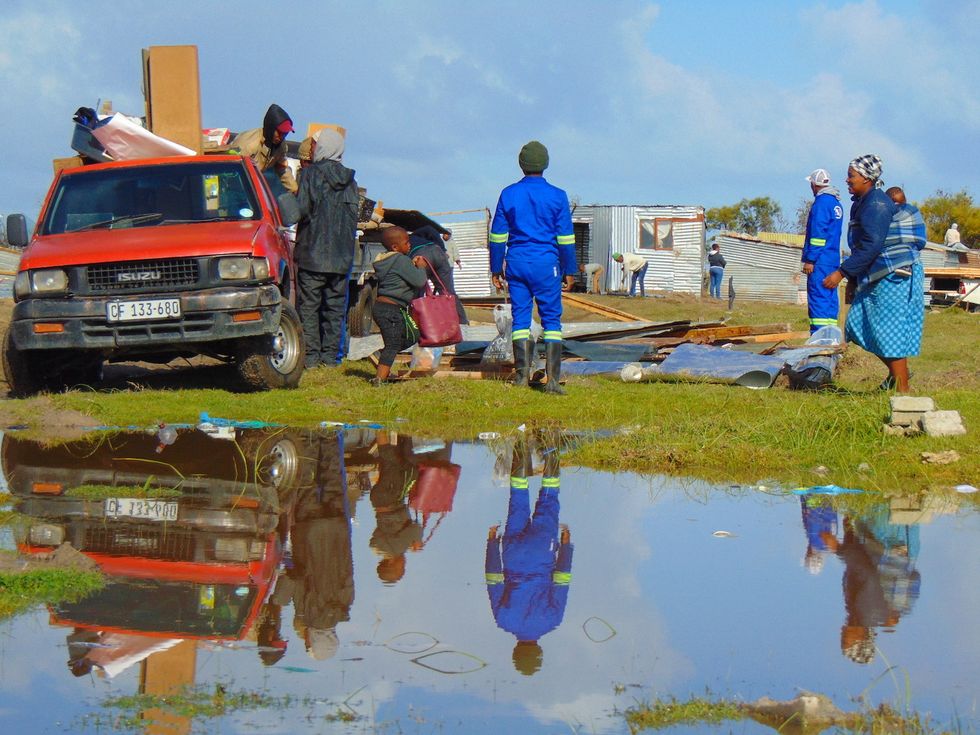
Gcobisa*, a mother of two, has been working for the retail giant Shoprite for eighteen months. "Shoprite cut my work hours short, so I now work part-time," she says in an interview with OkayAfrica. As a result, she is unable to pay her rent, so she moved to the newly formed settlement.
A week after the settlement in the location began, The City of Cape Town came and demolished some shacks that were built on land earmarked for a nature reserve near the settlement. The matter is currently in court.
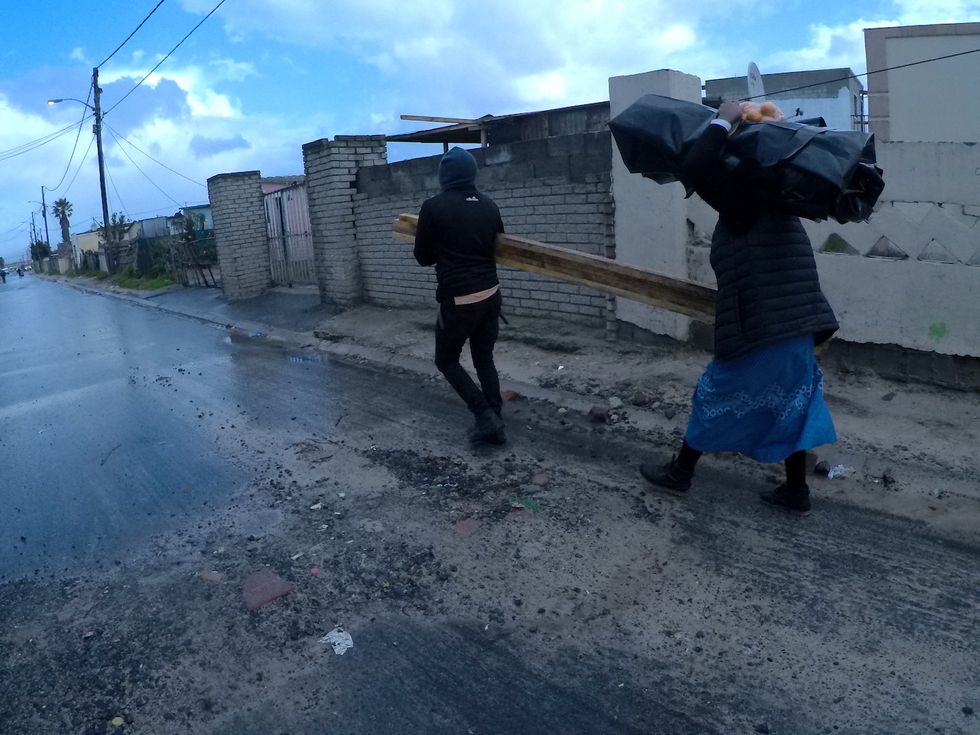
Cape Town-based photographer Masixole Feni, who, for years, has been documenting the plights faced by black people in the city's townships, documented the migration of residents from the township Mfuleni to Covid as it took place.
"I felt the need to highlight the people's need for proper housing, and it's a continuation of the work I've been doing of highlighting the struggles of black people in Cape Town," says the 2015 recipient of the esteemed Ernest Cole Photographic Award.
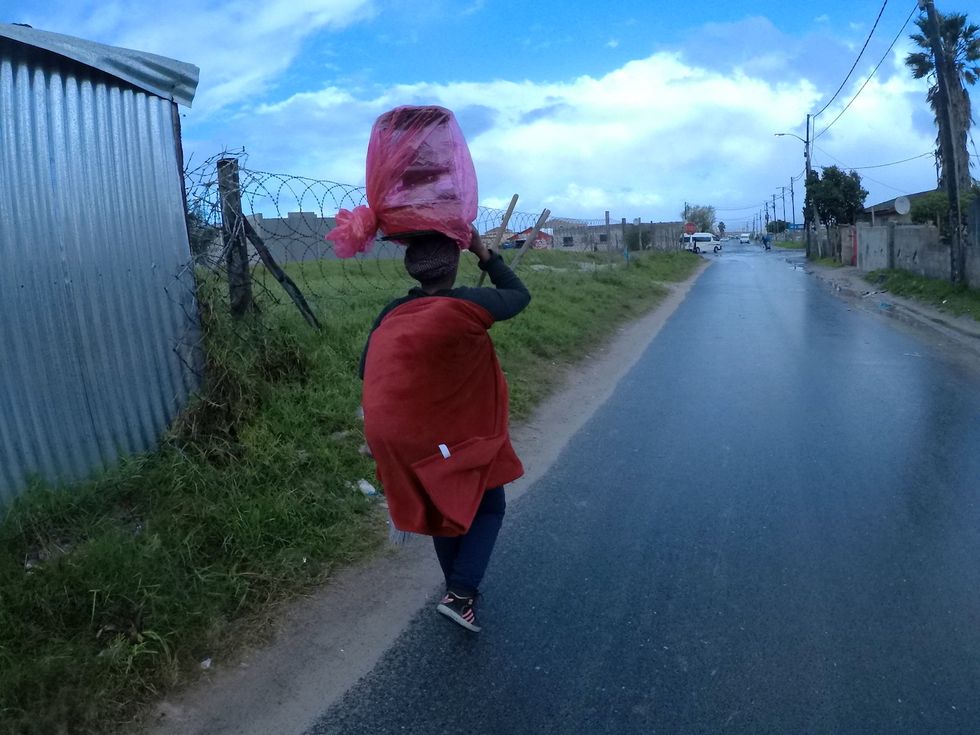
Cape Town being the city where colonialism has its roots in South Africa has been unkind to black people for centuries. To this day, almost 30 years after the abolishment of apartheid, black people across South Africa still live in townships built by the apartheid government and have to live without basic services. The ruling party, ANC, which took over in 1994 after the country's first democratic elections, has failed dismally at reforming South Africa from the inequality created by apartheid on basis of race.
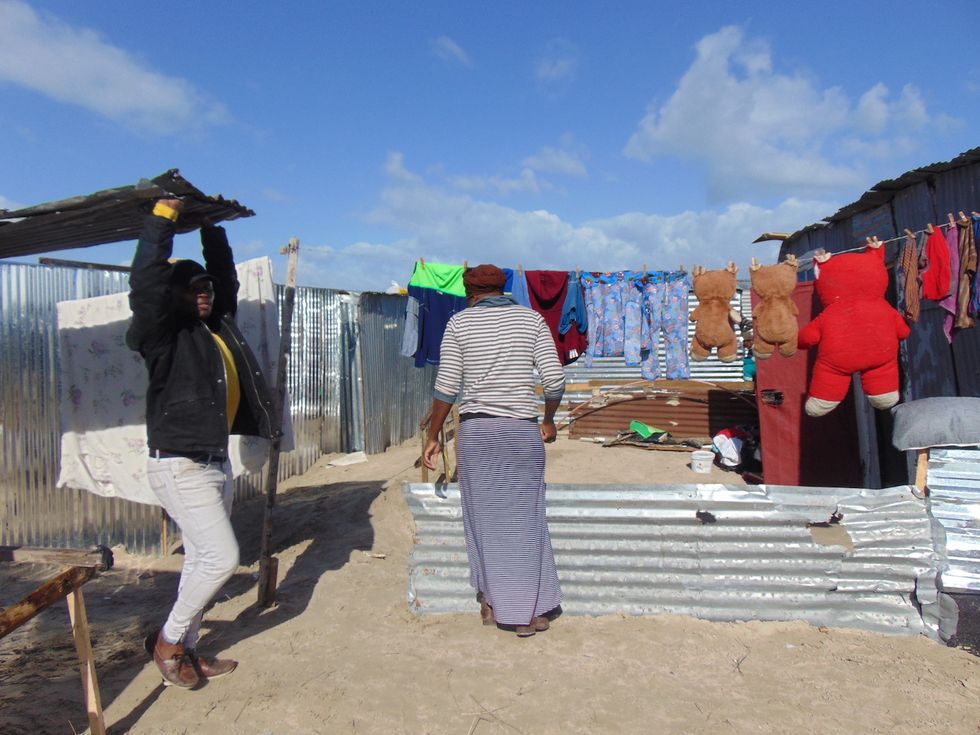
Black people who still struggle financially due to the legacy of apartheid and racism overall, are always moving from one place to another settling illegally on land that usually belongs to municipalities (in this case, the City of Cape Town).
So, some residents of Covid were struggling to make ends meet even before the pandemic hit. Vuyo*, who moved into Covid in the last three weeks and is originally from Johannesburg, has been jobless since he got retrenched in 2015. He moved to Cape Town in 2019 and has been job-hunting (unsuccessfully) ever since.

"There's no water and sanitation services in Covid settlement, no municipal action," says Vuyo in an interview with OkayAfrica before adding that Covid is a self-run community.
A majority of the residents we interviewed had applied for the government's Covid-19 relief grants, but most of their applications were unsuccessful.
*Not their real names.
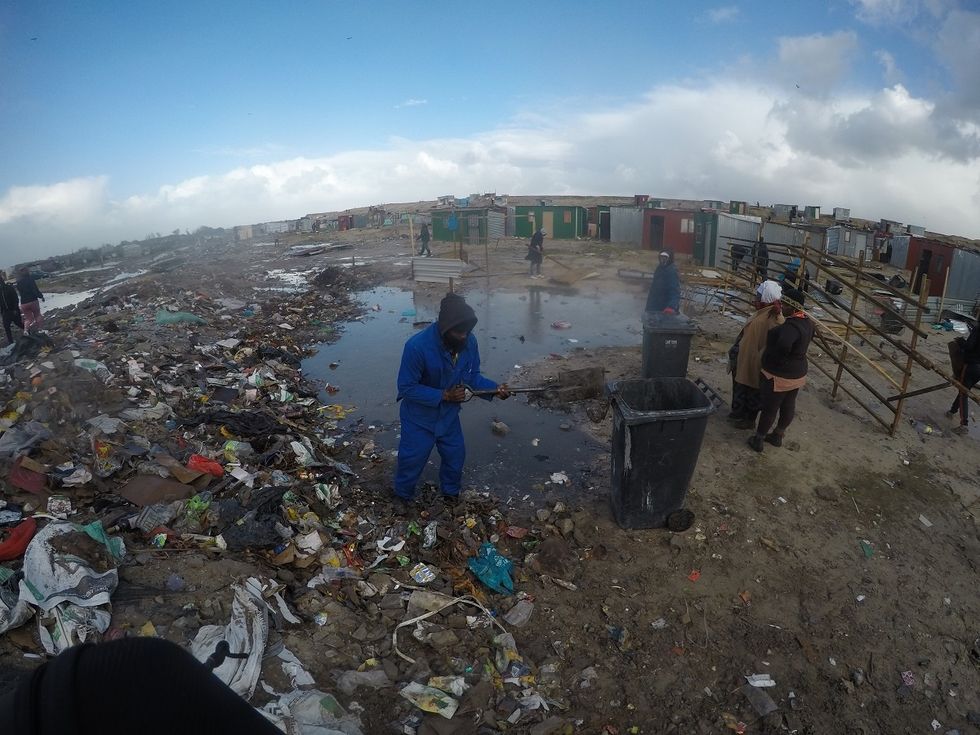
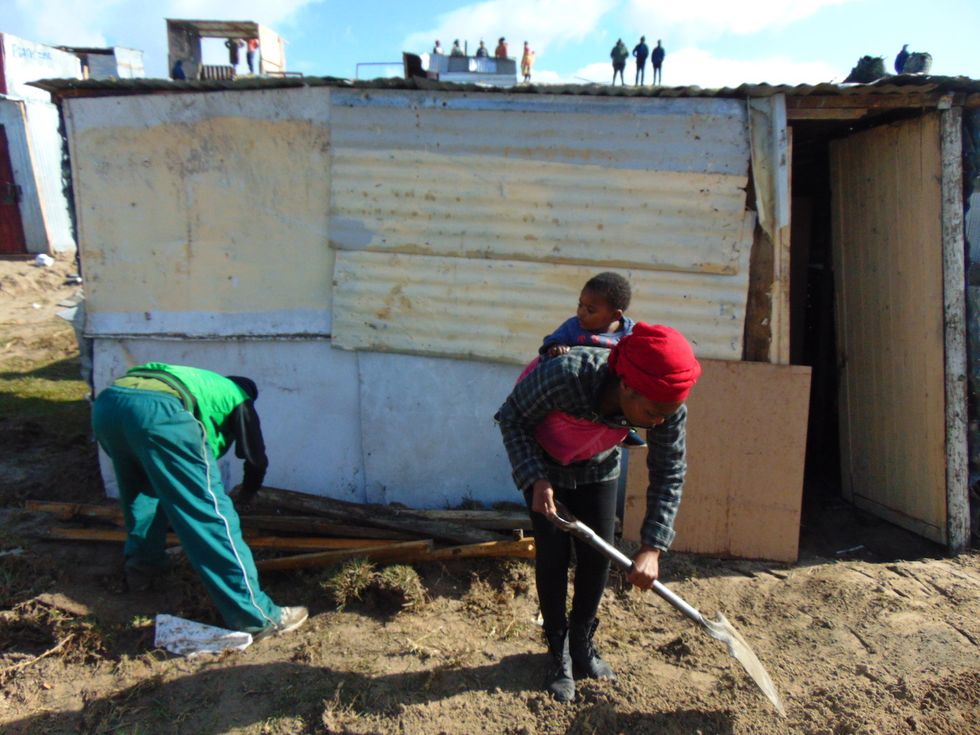
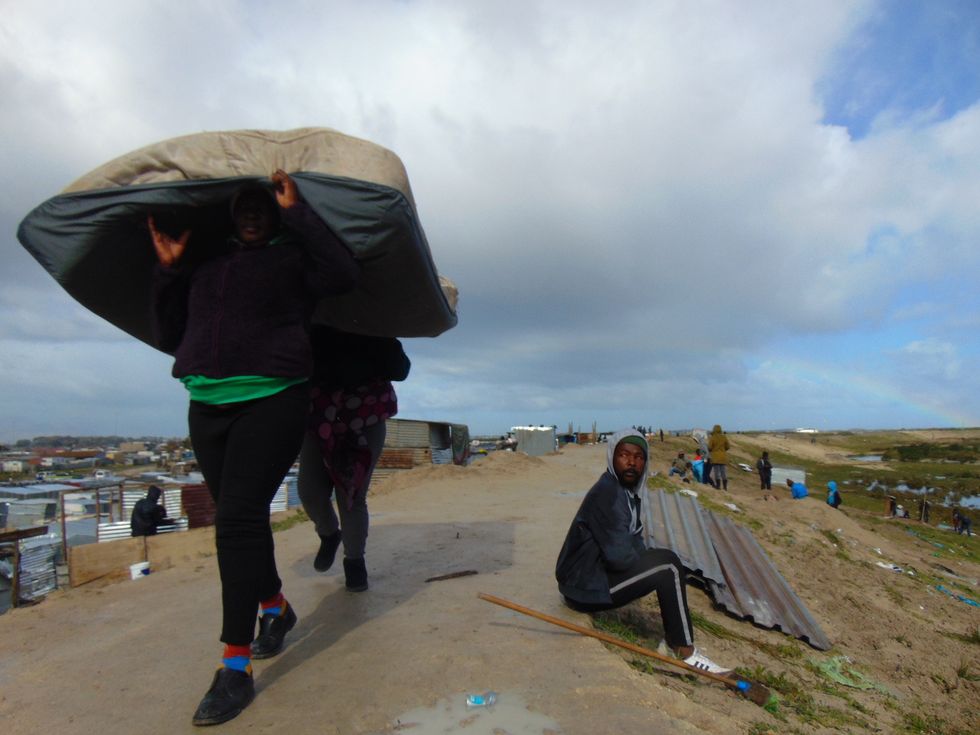
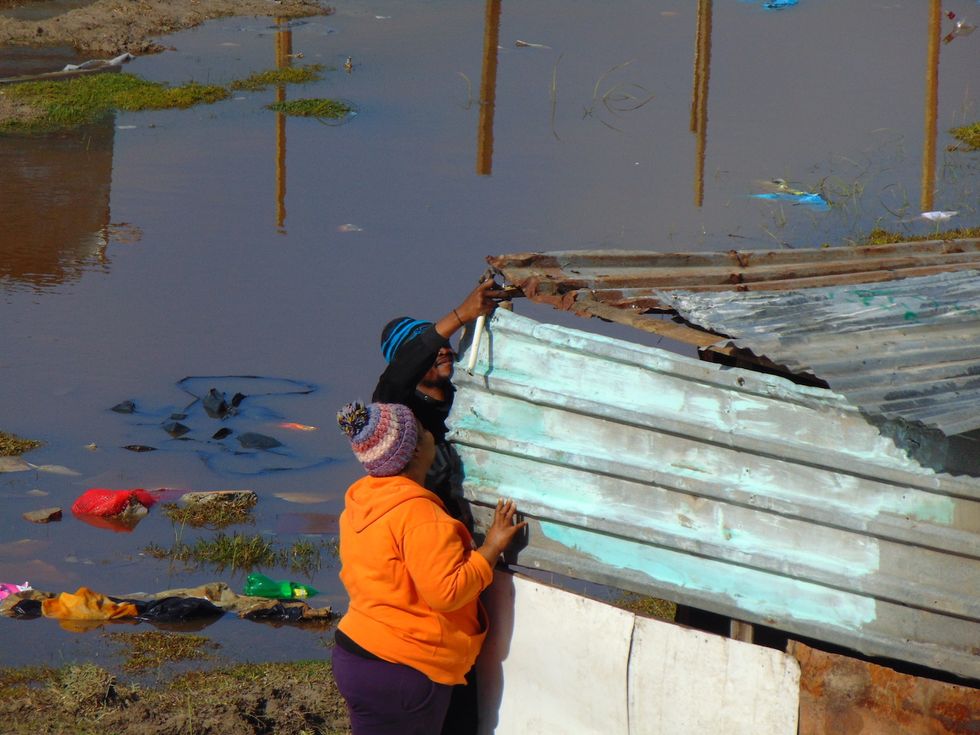
- French Doctors Cause Outrage After Suggesting COVID-19 Vaccine ... ›
- South Africa's Film and Television Industry Resumes Amid COVID ... ›
- Several African Countries Will Begin Easing Restrictions of COVID ... ›
- Here's How Artists are Navigating Music Amid Coronavirus Outbreak ... ›
- Kenyans Slam BBC Over Controversial COVID-19 Vaccine Trial ... ›
- Global Citizen's Announces More Artists to its Line-Up for 'One ... ›
- Op Ed: Africa is Not the Center of The Coronavirus Epidemic and the ... ›
- South Africans Call for Travel Ban Amid Coronavirus Outbreak ... ›
- Africans In China are Being Evicted from Their Homes and Blamed ... ›
- Emile XY Wants To Reconnect The String - OkayAfrica ›
- Emile YX Wants To Reconnect The String - OkayAfrica ›
- Everything You Need to Know About the Marburg Virus Outbreak in Rwanda - Okayplayer ›

